
I was surprised, a decade ago, when for the first time a student sat down in my office and told me that he was a sex addict. Of course I already knew that you can’t tell by looking at a person what may be going on in his or her life. But while I had heard of sex addiction, I was skeptical as to whether any such thing really existed. Isn’t addiction about substances, like drugs and alcohol? How could an activity be addictive, particularly such a ubiquitous, ordinary, everyday activity as sex?
Ten years later, I’ve learned a lot. In particular, I’ve learned that addictiveness is not a kind of magnetic quality that resides in things like alcohol or drugs or sugar and that reels people in who come too close to them, like a tractor beam. Addiction is a psychological mechanism that resides in people, that begins not as a problem but as a solution, as a way of managing otherwise intolerable states of feeling.
An addictive target can be anything that is used in this way. Chemicals like alcohol and other drugs, which affect how people feel by exerting physiological effects on the brain, make particularly effective addictive targets. But activities that evoke chemical changes in the brain do just as well. People manage their otherwise intolerable feelings—of shame, dependence, helplessness, rage—with work, with shopping, gambling, eating, exercising, and, yes, with pornography and other forms of sexual activity.
The problem, of course, comes when what started as a solution becomes itself a problem—not just a habit or an intentional means of stress reduction, but a compulsive behavior that the person cannot stop, even in the face of terrible negative consequences: trouble with the law, disruption of relationships, damage to physical health, interference with responsibilities at work and at home. This is what we call addiction.
The problem comes when what started as a solution becomes itself a problem.
I’ve been teaching a class on addiction at Eastern University for a couple of years now, and we talk in class about a range of subjects related to addiction—some that are more applicable to substance-focused addictions (like the pharmacology of substances of abuse and the so-called war on drugs) and some that are applicable to process addictions as well: risk factors like childhood trauma, interpersonal neurobiology, harm reduction and access to treatment, and treatment strategies themselves, like 12-step programs, psychological therapies, and community and family support and education.
In this class we ask a broad range of questions: Is addiction a brain disease or a sin, a problem of will or a problem of knowledge? Does addiction have primarily to do with individuals, or is it constituted and maintained in intimate relationships or on a societal level? Who is susceptible to addiction, and why? If a person stops engaging in addictive behavior, is he or she still an addict?
We explore Christian theological voices and biblical and historical resources for understanding how Christians have understood addiction in the past and more recently. We also read current books treating aspects of addiction that are often neglected in Christian theological treatment of addiction. In addition, we read personal accounts of addiction and recovery, and consider how a Christian response to addiction might incarnate the prophetic values of justice, mercy and humility. I share below a partial reading list to assist those interested in learning more about this ubiquitous and persistent challenge to human flourishing.
Margaret Kim Peterson is Professor of Theology and Psychology at Eastern University.
Suggested Reading:
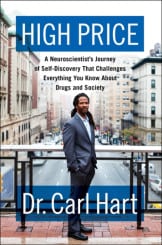 Beyond Addiction: How Science and Kindness Help People Change by Jeffrey Foote, et al (Scribner, 2014)
Beyond Addiction: How Science and Kindness Help People Change by Jeffrey Foote, et al (Scribner, 2014)
The Heart of Addiction: A New Approach to Understanding and Managing Alcoholism and Other Addictive Behaviors by Lance Dodes (Harper, 2002)
The Recovery-Minded Church: Loving and Ministering to People with Addiction by Jonathan Benz (InterVarsity Press, 2015)
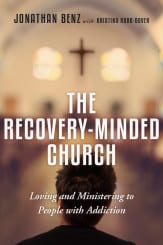 High Price: A Neuroscientist’s Journey of Self-Discovery That Challenges Everything You Know About Drugs and Society by Carl Hart (Harper, 2013)
High Price: A Neuroscientist’s Journey of Self-Discovery That Challenges Everything You Know About Drugs and Society by Carl Hart (Harper, 2013)
In the Realm of Hungry Ghosts: Close Encounters with Addiction by Gabor Maté (North Atlantic Books, 2008)
Table in the Darkness: A Healing Journey Through an Eating Disorder by Lee Wolfe Blum (InterVarsity Press, 2013)
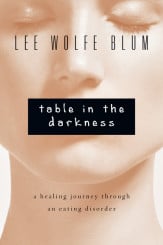 Ashamed No More: A Pastor’s Journey Through Sex Addiction by T. C. Ryan (InterVarsity Press, 2012) [Read our review.]
Ashamed No More: A Pastor’s Journey Through Sex Addiction by T. C. Ryan (InterVarsity Press, 2012) [Read our review.]
Alcohol, Addiction, and Christian Ethics by Christopher Cook (Cambridge University Press, 2006)
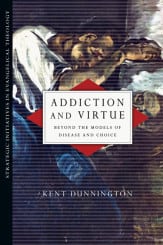 Addiction and Virtue: Beyond the Models of Disease and Choice by Kent Dunnington (IVP Academic, 2011) [Read CSA’s review here.]
Addiction and Virtue: Beyond the Models of Disease and Choice by Kent Dunnington (IVP Academic, 2011) [Read CSA’s review here.]
Addiction and Grace: Love and Spirituality in the Healing of Addictions by Gerald G. May (HarperCollins, 1988)
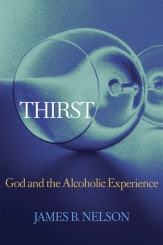 Victims and Sinners: Spiritual Roots of Addiction and Recovery by Linda Mercadante (John Knox Press, 1996)
Victims and Sinners: Spiritual Roots of Addiction and Recovery by Linda Mercadante (John Knox Press, 1996)
Thirst: God and the Alcoholic Experience by James Nelson (John Knox Press, 2004)



2 Responses
Your description of addiction is powerful. I wish you also included a simple solution I could try for my food addiction. I need help but am too weak to actively seek it.
Try reading the book Made to Crave by Lysa Terkeurst! It is a good place to start.